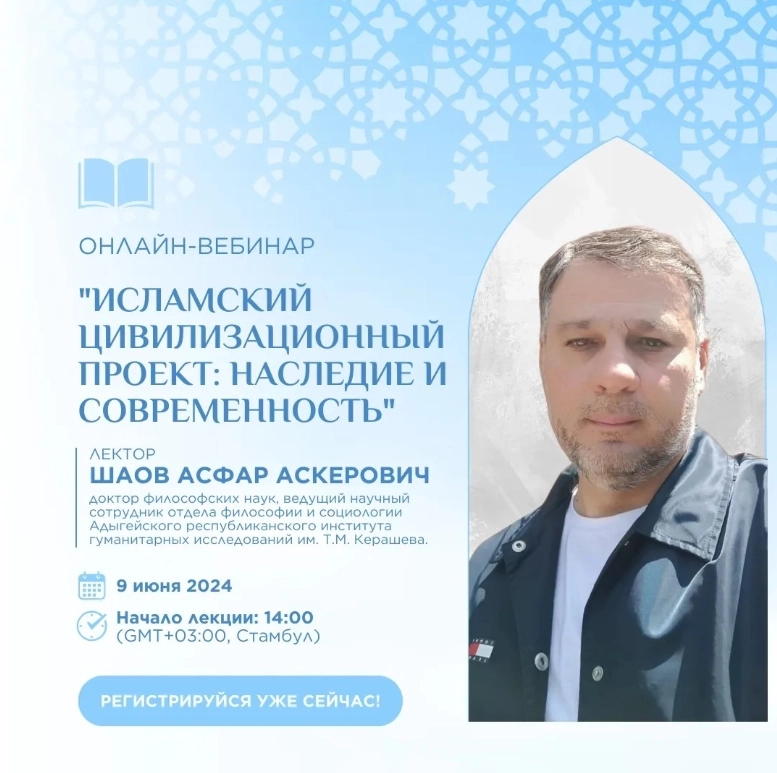As part of the IIIT Lectures Series for CIS Countries project, on June 9th, Shaov Asfar Askerovich, (PhD, senior researcher at the Department of Philosophy and Sociology of the Adyghe Republican Institute of Humanities T.M. Kerashov, delivered a lecture titled: Islamic Civilizational Project: Legacy and Modernity.”
Asfar Askerovich focused on the concept of the civilizational project and began his talk with the initial idea that civilization can be understood as the highest stage of social development. However, he also cautiously remarked that the term has potentially negative connotations that have emerged in real historical contexts. He emphasized contemporary semantic interpretations of civilization, referencing the works of Samuel Huntington, Fernand Braudel, and others, and discussed the problems of applying Western scientific concepts to Islamic realities due to various inconsistencies that may lead to clashes of ethical ideals. The lecture primarily examined the semantic concept of Islamic civilization, with a focus on Islamic past and future ideals. The civilizational project involves the creation of an ideal vision of the future, oriented toward a certain system of values that legitimizes the forms of socialized consciousness within the civilizational subject. The speaker also discussed the stages of civilization and the Western academic perspective of the medieval Islamic civilization as a “Golden Age” in the past. He contrasted it with the internal Islamic view, which is in fact not only oriented toward the past but also imagines a future based on the civilizational core of the Qur’an and Sunna. Three main driving forces of the Islamic civilizational project were highlighted:
1. the unity of religious consciousness (theological foundation),
2. the unity of historical consciousness,
3. the eschatology or messianism, where Muslims act as the “agents of truth” in the Abrahamic tradition.
Asfar Askerovich underscored the opposition of the Islamic civilizational project to the Western project, particularly amidst the contemporary systemic crisis of humanity. Western civilization has lost its monopoly on shaping global norms, leading to competition over variety of future visions. The lecture presented two scenarios for the development of civilizational strategy:
1. harmonization and parity of diverse civilizations in a multipolar world (temporary situation),
2. the replacement of one civilization by another, with the latter scenario deemed more probable and historically validated by the lecturer.
Key ideas of the “civilizational strategy” included the concept of
• a unified future vision,
• common good,
• justice,
• a specific cultural basis, in which cultural traditions are supported by religious forms of knowledge manifested in various institutions (political, legal, social).
The lecture provided a thoughtful analysis of the Islamic civilizational project, its ideals, and strategies, emphasizing the importance of a critical approach to the use of Western concepts in studying Islamic realities and offering perspectives on civilization development in the modern world.
The lecture recording is published on the YouTube channel Institute of Knowledge Integration:
https://www.youtube.com/watch?v=xNCE0Cs2NeI









